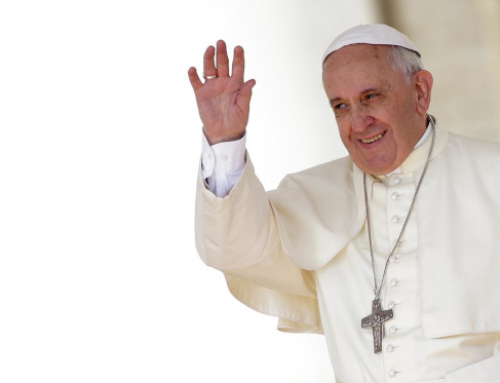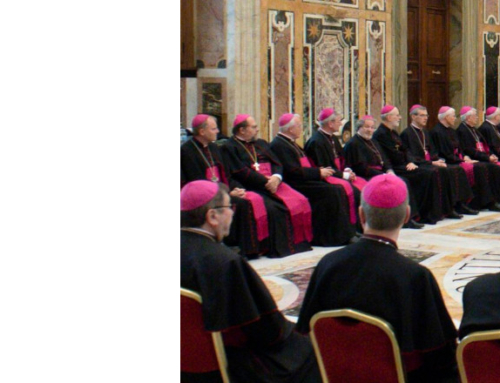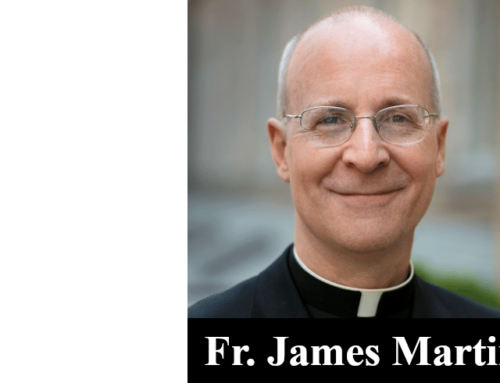Catholic League president Bill Donohue comments on the state of happiness on college campuses:
The most popular course at Yale these days—enrolling 1,200 students (they had to move the class to a huge building)—is called Psychology and the Good Life. It’s not just Yale where courses in positive psychology are all the rage: they’re packing students in all over the nation, and have been doing so for some time. The goal is to make students happier.
What is happiness? For Aristotle, it meant the ability of each person to reach his potential. That required hard work and was dependent on virtue. Aquinas cited the necessity of virtue as well, though “perfect happiness,” he insisted, was not possible without God. For today’s students, such conceptions of happiness are foreign at best, and anathema at worst.
Contrary to the prevailing wisdom, happiness is not analogous to pleasure; its analogue is joy. Pleasure may arise from self-indulgence, but true happiness stems from its opposite: self-giving. It is the joy we receive by giving of ourselves to others. People of faith understand this, especially practicing Christians, but to secularists, which include a lot of college students these days, it is unintelligible.
Can happiness be learned? That is what positive psychology is predicated upon. Indeed, it assumes it can be taught.
Happiness can be acquired, but to say it can be learned, and taught in a classroom, is not only a stretch, it is deceiving. No one doubts there are aids, exercises, and tips that can be tapped when we are down, but there are no shortcuts, or cheat sheets, that can be accessed to make us happy.
To put it differently, there is no happiness pill or injection. True happiness, dependent on virtue as it is, has a long apprenticeship; it must be carefully nurtured. It’s more like cooking a great chili or tomato sauce: it’s a slow boil, taking time to mature. It is not microwave ready.
Virtue is an expression of morality, and morality is typically grounded in religion. These are three attributes—virtue, morality, and religion—that are treated by those who teach positive psychology as if they were a communicable disease. Most of these professors are thorough-going secularists, bent on a quest for happiness without God.
A decade ago, Todd Kashdan was one of the early big names in positive psychology. He taught at George Mason University, and was smart enough to know the difference between pleasure and happiness; he aptly tied the latter to selflessness. But he was just like his colleagues in one important respect: he had an aversion to religion. Indeed, he boasted, “I never use the word morality.” Or God.
Daniel Gilbert, who has long taught positive psychology at Harvard, goes beyond Kashdan. He is concerned that his work on happiness seems to have all the trappings of a religion. “I guess I just wish it didn’t look so much like religion.” That makes him unhappy.
Despite this professorial aversion to religion, the empirical evidence on happiness overwhelmingly shows that the most happy people in America are also the most serious about their religion; the most unhappy are the secularists. This is one of the conclusions I came to writing The Catholic Advantage: Why Health, Happiness, and Heaven Await the Faithful.
Well-being is a term that describes our physical and mental health, our degree of happiness, and overall life satisfaction. Those who have the highest well-being are the most religious; those who score the lowest are the least religious.
I tested this conclusion by comparing practicing Catholics, priests, nuns (especially cloistered sisters), and saints to Hollywood celebrities and intellectuals. The latter, almost all of whom are secularists, suffer from poor physical and mental health, and are decidedly unhappy.
How can this be? Beliefs, bonds, and boundaries—the Three B’s—explain it all. Catholics believe in God, are bonded to each other, as well as to God, and respect behavioral boundaries. Celebrities, by and large, have no time for God, are narcissistic, and behaviorally reckless. Intellectuals are too smart to believe in God, are self-absorbed, and find boundaries to be suffocating.
A young college graduate, Rachelle Hampton, writing in Slate about the popular Yale course on happiness, recently spoke openly about her depression and the depression of other college students. She found herself “meditating” in her classes at Northwestern, electing to find solace in a course on Buddhism (this is a religion without rules, suited to the needs of secularists).
Rachelle is not alone. She shared this statistic: “Almost 50 percent of students surveyed by the American College Health Association in 2016 reported feeling that things were hopeless—and almost 37 percent reported feeling ‘so depressed that it was difficult to function’ during the previous 12 months.”
It is sad that so many bright young people are in a moral fog, falling back upon themselves to set anchor. Catholicism is anything but foggy—it is a clear-eyed prescription for well-being, anchored in the Ten Commandments and the Catechism. But don’t look for the positive psychologists to acknowledge this, even though it is supported by scientific evidence, the very god they worship.







